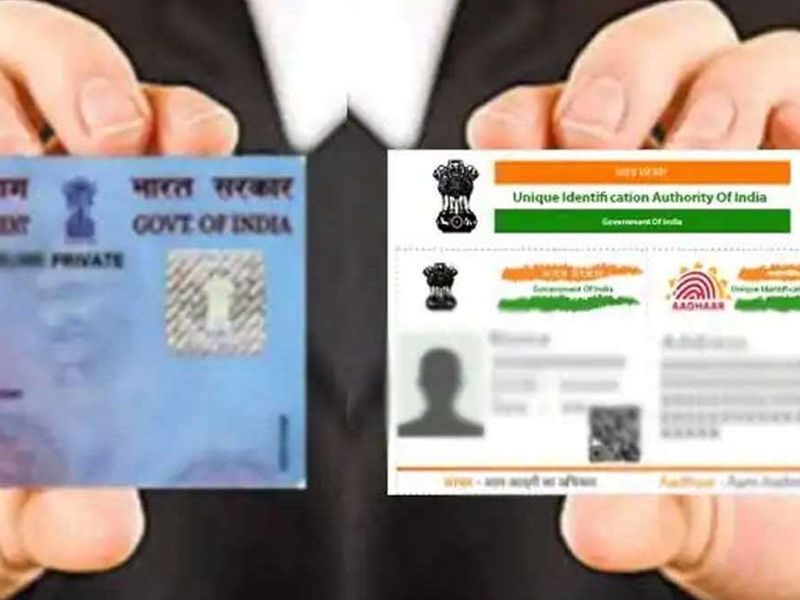
21 Aug
New Indian income tax rule: PAN card now mandatory for certain cash deposits, withdrawals
Dubai: After the Indian government amended cash limit rules earlier this year, it also made PAN or Aadhaar number mandatory for certain cash deposits and withdrawals. But does this apply to NRIs?
India’s Central Board of Direct Taxes (CBDT) issued a notification that cash deposits and withdrawals in a financial year of over Rs2 million (Dh93,041) when opening of current account or cash credit account with a bank, requires all Indians to furnish PAN or Aadhaar.
(A Permanent Account Number or PAN card, issued by the Indian Income Tax Department, and an Aadhar, a government-issued 12 digit identification number, are two ID documents assigned to each Indian citizen who either resides or looks to reside in India, while transacting amounts in Indian rupees.)
What does the statement mean and what has changed?
As per the notification, ‘every person, at the time of entering into a transaction [must] quote his permanent account number (PAN) or Aadhaar number and every person, who receives such documents, shall ensure that the said number has been duly quoted and authenticated’.
What this means is that prior to this government alert, your bank was already required to ensure that such transactions have PAN. But now your bank will be required to keep the PAN in the bank’s records and inform the same to the Income tax department regarding such financial transactions.
Earlier, as per income tax norms, PAN was mandatorily required in case of cash deposit exceeding Rs50,000 (Dh2,325) in a single day, but no annual aggregate limit for cash deposits was given before. While there was no limit for cash withdrawal, which has been prescribed now.

What if one does not furnish or have PAN? Are there fines?
The notification specifies how ‘every person’ making a cash deposit and withdrawal aggregating to Rs2 million (Dh93,041) or more in the financial year in one or more bank accounts are to reveal their PAN.
If not, he or she would not be able to perform such transactions. Paying or receiving cash above the limits set is also punishable by a steep penalty of up to 100 per cent of the amount paid or received.
Individuals who do not have a PAN need to apply for a PAN at least seven days before entering any transaction of above Rs50,000 (Dh2,325) a day or above Rs2 million (Dh93,041) a financial year.
Why did the changes come into effect? Are there more changes?
The Income Tax department, along with other central government departments, has been updating and amending rules to reduce the risk of financial fraud, illicit money transactions and other money crimes over the past few years, and tax experts suggest this move in line with this.
“The government also monitors receiving cash worth more than Rs200,000 (Dh9,303) to restrict the use of cash in high-value transactions. So, a person cannot accept more than Rs200,000 (Dh9,303) in cash, not even from close family,” said an independent tax consultant Brijesh Meti based in India.
Since the rules are applicable since May 26, experts also opine how authorities may need to clarify whether the transactions are undertaken prior to May 26, shall be considered for computing the aggregate value of Rs2 million (Dh93,041) for this financial year or not.

Does this apply to Non-Resident Indian (NRI) transactions?
While PAN may be required, this rule doesn’t apply to NRIs when it comes to having Aadhar, clarified Dixit Jain, Managing Director at The Tax Experts DMCC.
“It is not mandatory for NRIs, as NRIs are not mandatorily required to have an Aadhar card, even though they can easily apply for one when they come to India,” Dixit Jain added. “However, PAN may be required.”
In other words, more than this rule change impacting NRIs who would have already added PAN details to their bank accounts, as initially required by banks, it is aimed at getting banks to keep the PAN on record, and not seek PAN with each transaction, and officially declare any withdrawals over Rs2 million.
“India’s income tax laws prohibit cash transactions above Rs200,000 (Dh9,303), which is also the limit when accepting donations from a single person on a single occasion,” Meti added. “Those who accept hard cash over this amount violating this clause may face a penalty equivalent to the amount received.”
“In a property transaction, the maximum hard cash allowed is also Rs20,000 (about Dh1,000). The limit remains the same even if a property seller accepts an advance.”
Source:https://gulfnews.com/your-money/taxation/new-indian-income-tax-rule-pan-card-now-mandatory-for-certain-cash-deposits-withdrawals-1.1660917543823